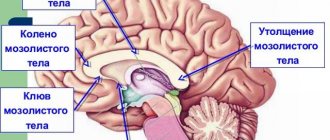There have been plenty of stressful situations in recent months - we were worried about our health, work, children, restrictions... Why did some suffer more, while for others, little seemed to have changed in their lives? What does our reaction to stress depend on – and is it possible for a person to change it?
Let's ask ourselves a question: what causes a person to experience negative mental (emotional) states? What makes us afraid, angry, anxious, irritated, guilty and ashamed, angry, remorseful, or any other negative emotion? What is the cause of all these conditions, which in everyday life are often called in one word - stress?
Yes, there is physiological (biological) and psychological stress. Let me give you a simple example. Biological stress is the physiological tension that a person will experience if you pour cold water on them on a hot day. What will happen? The head will be pulled into the shoulders, the face will wrinkle, trembling will go through the body, and vascular spasm will occur. These physiological reactions will manifest themselves in the vast majority of people in a given situation.
But psychologically , people will react differently to what will happen to them. Most likely, the majority will be dissatisfied with this event, will begin to complain, be indignant: “Oh-oh! Stop it immediately, I feel bad!” And someone will react joyfully: “Hey, hey! Let's! Hooray!". Obviously, the former can reach the point of emotional overload and stress, while the latter cannot. Although their physiological reaction will be the same.
We are, of course, interested in psychological stress, not biological. Therefore, in the future, by the word “stress” we will mean exclusively emotional stress of high intensity.
The most stressful life events, table
There are quite a few definitions of stress, but we will take the one that is most understandable to a wide range of readers. So, stress (from the English stress - load, tension; a state of increased tension) is a state of excessively strong and prolonged psychological stress that occurs in a person when his nervous system receives emotional overload. Stress disorganizes a person’s activity and disrupts the normal course of his behavior1.
What is the cause of stress (emotional tension) from the point of view of modern scientific psychological thought? What causes people stress? According to many researchers (fortunately, not all, and why fortunately - read on), the cause of stress is the so-called stress factors, or stressors, that is, events and situations.
A huge number of classifications of stress factors have been created, which even provide an assessment of the intensity of stress. I will give only one of them. This scale was created by psychiatrists Thomas Holmes and Richard Ray based on a survey of more than 400 men and women of different ages, with different education, marital status and from different cultures. They were asked to rate their level of stress when each of these events occurred.
| Life Event | Stress intensity |
| Death of a marriage partner | 100 |
| Divorce | 75 |
| Separation from marriage partner | 65 |
| Imprisonment | 63 |
| Death of a close family member | 63 |
| Injury or illness | 53 |
| Marriage | 50 |
| Dismissal from work | 47 |
| Reunion with Marriage Partner | 45 |
| Retirement | 45 |
| Health problems in a family member | 44 |
| Pregnancy | 40 |
| Sexual problems | 39 |
| The arrival of a new family member | 39 |
| Adapting to changes at work | 39 |
| Change in financial status | 38 |
| Death of a close friend | 37 |
| Transfer to another job | 36 |
| Termination of the right to repurchase mortgaged property | 30 |
| Changing responsibilities at work | 29 |
| A son or daughter leaving home | 29 |
| Difficulties with household members | 29 |
| Outstanding Personal Achievement | 28 |
| The wife went to work or quit her job | 26 |
| Entering or graduating from school | 26 |
| Changing living conditions | 25 |
| Reconsidering personal habits | 24 |
| Difficulties with the boss | 23 |
| Changing of the living place | 20 |
| Transfer to another school | 20 |
| Change of entertainment | 19 |
| Changes in religious life | 19 |
| Changes in public life | 18 |
| Changing your sleep routine | 16 |
| Changes in eating habits | 15 |
| Vacation, holidays | 13 |
| Christmas | 12 |
| Minor violations of the law | 11 |
What is stress
Now a little dry theory. The term “stress” was first used in 1946 by the scientist Hans Selye, who received the nickname “Father of Stress.” At the same time, stress, as a specific reaction of the body to changes, was discovered by Selye by accident. At that time, the scientist was searching for new hormones and conducting experiments by crossing biomaterials. Attempts to discover a hormone unknown to science were unsuccessful. But in the process of work, Selye drew attention to the reactions of experimental rats when an extract from the ovaries of a cow was introduced into their bodies. They talked about the presence in animals of reactions similar to those experienced by humans when changing external temperature, sounds, changes in light, pain, and so on. At the same time, regardless of the source of exposure and its manifestations, a similar set of symptoms acts as a reaction.
The result of this observation was the hypothesis of the existence of a universal adaptive response. Selye called it “General Adaptation Syndrome.” Later the term was simplified to the familiar “stress”.
When a person experiences stress, all systems of the body are involved in the reaction. At the chemical level, this is the release of the hormones cortisol and adrenaline. On the psychological level – anxiety, fear, loss or increased attention. On the physical side - numbness of the limbs, pressure surges, rapid heartbeat, and so on.
Increased heart rate and increased overall activity of the body are the result of adrenaline. Cortisol, in turn, increases blood glucose levels. It affects the state of the brain, immune system and other organs. Suppression of reproductive and digestive functions is also a result of the effects of cortisol. At this moment, corresponding signals are sent to the areas of the brain responsible for mood, fear and motivation. Subsequent adaptation of the body to new conditions is carried out precisely due to these processes.
Stress is a complex reaction of the body (psychological and physical) to the influence of emotionally brightly colored external factors. At the same time, it can be caused by both negative and positive triggers. Good news or great luck also causes stress. A person who experiences unexpected joy has an increased heart rate and a surge in hormones. But we will talk about stress that is caused by negative factors, since this reaction is not so clear in its manifestations and consequences.
Why do people experience stress differently?
There are many other scales and classifications that can be cited, with only one big and bold “but”. The approach on which this study was conducted is fundamentally flawed . In fact, researchers and scientists who say that stress (emotional tension) is a consequence of events and situations are wrong! Let me explain my point.
Let's take any situation, even the most stressful: the death of a person. And we will find out that, it turns out, there are people on earth who rejoice at the death of their beloved relatives. These people were brought up in other cultural and philosophical-religious traditions. For example, it is known for sure that Buddhists view death differently than Europeans. This is not about the emotional state of a person, but about the intensity of the manifestation of this experience.
Again. It is important. We analyze not different, but identical situations. For example, we do not consider the death of a rich relative who left an inheritance, and the death of a poor relative who left only debts. And it turns out that in absolutely the same situation people can have very different emotional reactions:
- Some people will indulge in grief all their lives. This will deprive them of the strength and opportunity to create something valuable. It is precisely such people, having lost a loved one, who become drunkards or die;
- others will grieve, but it will not deprive them of life itself. After some time, they will recover from grief and move on;
- still others will smile sincerely, beat the drums and dance around the fires, rejoicing that their loved one has finally left this world and is now in a place where he is incomparably better.
We can take a situation that is less traumatic for a person raised in our culture, for example, a traffic jam. And we will also see different psychological reactions. For one person, traffic jams will be a strong stress factor, but for another it will not be at all, although they are both late for work and their bosses are angry. One will arrive exhausted and devastated, and the second will be in quite a resourceful state.
We can continue to give examples where, in very similar life situations, people experience mental states that are different in intensity and sometimes in sign. This means that not everyone will experience stress equally.
How to cope with stress at work
How to deal with stress at work? There are several basic rules that will help you survive professional stress:
- It is necessary to adhere to the principles of time management and keep everything under control. To do this, you can start a weekly journal, and that’s it.
- Never take on an excessive load. Perform only those duties that you are able to do.
- Do not conflict with the team under any circumstances. Do not raise your voice to management; negativity is inappropriate here.
- Get enough sleep, eat right, and exercise in your free time. Learn to disconnect from work and fully relax.
- If you don't know how to cope with stress at work, try to look at the situation from a different perspective. If you have problems at work, push them into the background. Approach everything from an optimistic point of view, and then no stress will affect you.
- Do you have a new job and don't know how to cope with stress? Just wait and everything will work out. Usually, a new job is always difficult, but all this is temporary.
Let your work always bring you only satisfaction and the question of how to relieve stress in the workplace should not be on the agenda. Keep everything under control and you will always be on top.
The cause of stress is within a person
From this we can conclude that the cause of stress is not a situation or event, but something that is hidden inside a person! And many scientists agree with our conclusions.
For example, American specialists J. S. Everly and Robert Rosenfeld published the book “Stress: Nature and Treatment” in 1985. Its main idea is that not all events and phenomena (external or internal) become stressors, that is, they perform a stress-generating function. If the stimulus is not interpreted by a particular person as a threat or something that has a negative consequence, then the stress reaction does not occur at all! Thus, most of the stress reactions people experience are actually self-created, according to Everly and Rosenfeld! I specifically highlighted the word interpreted, for which in Russian there is a good synonym interpreted.
Long before Everly and Rosenfeld, in 1966, American psychiatrist Richard Lazarus published the book Psychological Stress and Coping Process, which conveys the opinion that the occurrence of psychological stress and its intensity depend on the personal characteristics of a particular individual. This approach is called Lazarus' cognitive theory of stress. A very bright and helpful theory, which for some reason is almost never used by psychotherapists...
And since we now know that people experience states of different intensity and sign during the same events and situations, it is important to find an answer to the question of what is the difference between these people. By answering this question, we can try to change within ourselves what is the true cause of stress, automatically receiving as a result a resource that was previously spent on negative states.
How to get out of stress after a breakup
How to cope with stress after a divorce or separation from someone you loved and continue to love? Of course, this is a truly difficult test, which is quite difficult to cope with. But there are still ways to get out of such stress.
In most cases, stress after a divorce lasts about two months. Your task is to survive this period. The human psyche is designed in such a way that he cannot constantly suffer and worry. The saying: “time heals” is more relevant than ever in this case. The mood, after a certain period, will change for the better. And perhaps you can even communicate with your ex-partner on a friendly note.
To survive stress, do not be alone with your problems, do not withdraw into yourself.
Share your experiences with loved ones - it will become easier. Immerse yourself in work - this is a panacea for any problems. Sports, proper nutrition, meditation and a sober look into the future, of course, a happy one, will also help you cope with stress. Many more good moments will definitely happen in your life and that person will appear who will appreciate and love you.
Why do people react differently to the same stressful situation?
In order to answer this question, I propose to introduce another model, according to which a person’s life is a journey, and the person himself is a traveler.
This traveler is each of us. We go through life, choosing a goal and moving towards it. The goal may be hundreds or thousands of kilometers away, but we are still trying to go our way, overcoming all obstacles, and get what we want.
Tell me, how exactly does a human traveler know that somewhere there is something that he can achieve?
Suppose a person wants to go to Brazil for a carnival, but at the same time he lives in a town forgotten by everyone. None of his friends had ever been to Brazil. He himself had never been there either. How does he know about the existence of Brazil? The answer is quite simple: he watched the carnival on TV, read a book about this country or saw it on the map.
So, society tells us about possible goals, we receive certain knowledge about the world from society. From parents, school teachers, friends, directors, writers, bloggers and so on. And this knowledge about the world, within the framework of the model we are talking about, will be called the word map.
That is, a person is a traveler exploring the real world. But in his head he has a map where this world is depicted. A map is an idea of the world in which each of us moves and lives, or, if you like, a worldview (view of the world) given to us by the society that surrounds us.
Not all of the information on the map was created by us ourselves. Most of it has not been personally verified by us. But often we believe in it as an inviolable dogma, because we are used to thinking so. Because in childhood we were told something by people whom we trusted 100 percent - our emotional authorities (moms and dads and other loved ones).
So, on maps we mark our goals and plot routes. And we travel (live) in the real world. And now, attention, we are exploring the question: what is so different on the cards that people, finding themselves in the same life situation, react to it differently?
Man after divorce
To recover and survive troubles after divorce, women and most men need to go through several stages.
- Shock phase. This is a normal reaction of a healthy person to grief, an unpleasant situation or divorce. This period can take from several hours to 2 weeks. This time is the most difficult, because a woman or a man is confronted with a fact; they learn about betrayal or other events that will lead to divorce. After this, you shouldn’t withdraw into yourself and hold on to your emotions. It is better to express them, share your feelings with family and friends.
- State of depression and suffering. Period - up to 2 months. Most people feel fear, the meaninglessness of life after a divorce, a feeling of loneliness and a desire to return everything. Everyday feelings can be contradictory, they are tangled into one ball, which makes it difficult to understand the situation of divorce. In this phase, you should also not keep your feelings to yourself; it is better to throw out the accumulated thoughts and emotions in connection with the divorce. Many women blame only themselves for divorce. This cannot be done: to save the family, the efforts and desires of both partners are needed. No matter how hard it is for a woman (man), they should not forget about children, who are no less worried in this situation and also need care and support.
- Residual effects after stress. How long does this stage last? It can take up to a year. During this period, there is no longer any grief or severe mental suffering; sometimes slight emotional fluctuations appear that are associated with memories. It is most difficult for those women who had many common friends and common hobbies with their husband.
- A year later, time begins to heal the wounds of the soul after divorce. There is no longer any fear of being alone, a woman gets used to coping with problems on her own, and success brings her special pleasure. The woman begins to respect herself again and is ready for a new relationship. The stage of experiences and stress after a divorce is considered complete when there is no desire or attempts to return to the old relationship, but there are plans for the future and for a full life that takes on new shades.
Women are more emotional and can go through these phases much longer than men. Their condition is often characterized by stress. Although men suffer no less morally from divorce: they are simply accustomed to keeping all the pain and emotions to themselves.
After a divorce, it is quite unpleasant and difficult for both spouses. And even if at first glance it may seem that men are not worried at all, this is not true. The time after divorce has a much more destructive effect on men than on women; depression begins. It is much easier for a woman to get out of such a state. To understand the reason for this fact, you need to understand the psyche and way of thinking of a man.
After a divorce, men experience depression and a crisis that is too often underestimated by them and society. Being sad and sad is understandable, but these are just temporary phases after a divorce.
For men, the loss of family status, as well as the loss of a job or a favorite thing, is associated with a loss of personal value in the eyes of society. This causes severe grief that turns into depression.
Their self-esteem is directly related to a man’s position in society and is often overly dependent on the opinions of others. This leads to enormous mental stress and ultimately to problems after divorce.
Confusion from the loss of one’s place, status and stability, wounded pride and self-esteem gradually develop into resentment, despair, depression and anger. There is a sharp change in the behavior and character of men - some plunge headlong into work, other men resort to alcohol for depression.
After a divorce, the strong half of humanity develops a craving for self-destruction; guys stop valuing their lives and often commit risky actions. Another unpleasant, but at the same time frequent scenario, is when after a divorce a man cannot completely let go of his now ex-wife.
A man under stress begins to follow her, interfere in her life, and in the worst cases, threatens to commit suicide if she does not return.
The whole situation becomes more complicated if the couple has children. They already have a hard time after their parents’ divorce, and they often become the subject of disputes and blackmail. This can cause irreparable harm to the child's psyche. For men who initiate the termination of a relationship, an additional burden is a feeling of guilt towards children and depression.
After divorce, men often suffer from anxiety, nightmares and insomnia, which leads directly to depression. Physical training will help you get rid of excess energy and anger, and improve your sleep. Proper, healthy nutrition will improve metabolic processes in the body, which guarantees an increase in mood.
If you suddenly want to drink, don’t limit yourself. A glass of wine with lunch or a bottle of beer before bed will help you relax, the main thing is not to give in to temptation and not fall into a drinking binge.
In a situation where the divorce process is initiated by the wife, the man falls into a state of stupor. Despite the negative impact of stress factors, men try to be resilient and do not show their feelings openly.
This behavior model significantly complicates the analysis of the emotional state. According to psychologists, men endure such a traumatic situation quite painfully.
Emotional overstrain and constant exposure to stress have a negative impact on physical health. On this basis, chronic diseases may worsen and thoughts of suicide may appear.
It is quite difficult to answer this question; female psychology is very individual, experiencing this or that event in its own way. Nevertheless, general conclusions can still be drawn.
Every wise woman knows that the main blow to the mental and emotional state occurs in the first days after the final break. Of course, over time, life gets better, and many women begin to feel renewed and free from family routine and burdensome household responsibilities.
But the first few weeks... Yes, separation is very stressful.
Many women feel abandoned, lonely and vulnerable. Some even think about the worst and start taking antidepressants. It seems to many that it is impossible to survive a divorce and life ends the moment the corresponding stamp appears in the passport. And some, on the contrary, try to hide depression behind an unnaturally cheerful mood.
But if there is at least an elementary mental organization, parting with a once close person is still a psychological loss, and the grief reaction that accompanies it is natural.
Trying to drown out and hide mental pain within yourself will not lead to anything good.
To get through a separation situation with minimal losses, the human psyche must go through all stages of experience.
For each person, the length of their stay is purely individual and depends on the specific situation and mental characteristics. If we try to hide behind a wall of indifference, each of the stages can emerge at the most unexpected moment of a new life and throw us far into the past.
Knowing the emotional state of a person going through a divorce helps them get through this difficult stage of life and better control their emotions. Understanding that many people go through the same emotional experiences allows you to realize that after a divorce the world will not fall apart.
If these states of melancholy and hopelessness are familiar to many, it means that you can cope with them and return to the normal rhythm of life.
A woman after a divorce evokes sympathy and compassion. She can cry on the shoulder of her mother or friend.
How does a man feel after a divorce? The male psyche goes through the same stages of loss and bereavement described above. Pain, disappointment, a sense of loss, fear that a mistake had been made, bitterness over wasted years.
How to survive a divorce? A divorced man cannot cry on forums, so he hides everything within himself, not bringing his thoughts and feelings out, on the contrary, pushing them deep into the subconscious.
It has been proven that men experience divorce much more acutely and difficultly than women. Therefore, despite the apparent cheerfulness and calmness of divorced men, the consequences of divorce for them can result in real physical illnesses, and sometimes even provoke a suicide attempt.
Men are 3 times more likely to bring themselves to nervous and psychological exhaustion than women, and they are also much more likely to attempt suicide. About 30% of them seek solace in alcohol, 13% do not shy away from casual relationships.
Often they are entertained by the thought of renewing their relationship with their ex-wife. At first, men enjoy all the benefits of freedom, but not because new adventures bring pleasure, but then to escape from sad thoughts.
Stereotypes about divorce have not been revised in our society for a long time, but recently the behavior of men who have experienced the loss of a family is of serious interest to psychologists. It is generally accepted that a woman, without financial support and a strong male shoulder, falls into a prolonged depression and cannot return to a normal rhythm of life for a long time.
What did they say about men? Of course, what they receive is freedom from obligations, for which they have to pay with partial loss of property and money. Otherwise, a young man or an already established one can live as they please and even marry a new passion, whom in some cases they have been dating for years.
But the truth turns out to be not so rosy.
Divorce is not only a formal break in a relationship. In almost all cases, this is a loss of energetic support and connection that the spouses have formed. It is this connection that is the basis of marriage; it does not break after leaving the court and signing the documents. Each spouse must adapt to the changed situation, but men cope with this much worse than women.
The psychology of men after divorce is characterized by great interest in the life of their ex-wife. This is very easy to explain: the energy connection has not yet been broken, and the spouse cannot tune in to life outside of it.
Surprisingly, even the appearance of a new boyfriend for a woman cannot stop her ex from visiting and talking about her past life. Often, women who begin relationships with recently divorced men do not notice that they are depressed and are consumed by jealousy towards their ex-spouses.
But in reality, a man simply cannot improve his life in the absence of the usual process of receiving energy and exchanging it.
Women, left alone, try to actively express their emotions, which allows them to come to their senses faster. Men do not have the right to lose their status as a strong and confident male, so they carefully hide their grief and gradually withdraw from life. They withdraw into themselves and in many cases behave completely atypically. Most often, depressive syndrome is expressed as follows:
- absent-mindedness, lack of attention and loss of decision-making ability;
- a destructive passion for alcohol, drugs and other ways to forget;
- aggression and sudden attacks of anger, which can be expressed in self-examination;
- complete loss of interest in all areas of life;
- chronic fatigue, frequent headaches;
- decreased potency.
Most often, depression occurs in men a few months after a divorce. During this period, the energy that once fueled the spouses dries up, and the novelty of a free life ceases to please. In addition, men during periods of depression find it difficult to see halftones; they completely lose the ability to enjoy life.
What should a man do after a divorce so as not to fall into prolonged depression and quickly return to normal life? Psychologists unanimously say that you should not hide your emotions from others. A man has the right to grief, suffering and disappointment. He should not, while experiencing mental pain, put on a mask of indifference. Such behavior is a direct path to depression.
In this case, you should not hesitate, but you should immediately contact a psychotherapist. Modern medicine offers various methods of drug-free treatment of depressive syndrome in men, which give fairly good results in 80% of cases.
Despite the fact that divorce, how a woman can survive it, is quite common, this does not mean that men easily cope with this stage of life. Of course, separation most often comes due to the male factor. Psychology helps women forget their husbands after a divorce, but it happens that the wife becomes the initiator of the separation. How then should a man be?
Therefore, in order for a man to survive stress after a divorce, he needs qualified help from a specialist. First of all, you need to speak out, since many men try to suppress everything within themselves, their internal experiences lead to heart attack and stroke. This cannot be allowed. All emotions must come out. A psychologist will help you talk about painful issues and release all the negativity.
The most important thing is that a man must understand afterwards that life has not stopped. There is no need to continue the endless showdown. Simply, you should erase this woman from your life once and for all. Once this is done, life will return to normal.
WITH NUMBERS IN HANDS
You can immediately say “no” for brevity and not write this article. But I really want to go into details.
Because a man after a divorce is a special, fascinating article. Especially when he got divorced, but didn’t stop loving.
Or he fell out of love, but the mental wound is deep and wide. And this is how it happens most often.
Even if he himself left, he feels abandoned and lonely. He loved, he was left - it’s not easy.
He loved and fell out of love - no one knows which is worse.
Now he is alone, but he is not ready for loneliness. The longer the marriage lasted, the more he became accustomed to living with a woman and could not live without a woman. Not because of sex, but for a complex set of reasons, which I will once again formulate briefly: I’m used to it. What to do next?
Hang in there, dear women. Here he is with a bottle, let's say Martini is already knocking on your door. Don't rush to open it.
Perhaps you have known him for a long time and think that you have no reason to be afraid: he is a decent person. This is where you are wrong.
A freshly divorced man is as dangerous as a landslide, and does not look like himself, like a transforming robot in different guises. Forget everything you knew about him for a while.
Now there is a different person in front of you. He is truly destroyed, confused, offended and can allow himself a lot of things that he did not allow himself before.
Regardless of the character and behavior in marriage, often after a divorce a man begins to revel in the freedom he has received. He ignores depression, lyrical memories and other consequences of what happened and does not seem to suffer. From the outside it seems that he doesn’t care about divorce.
For some time he may be in euphoria and anticipation of new acquaintances and numerous sexual relationships. He begins to date 2, 3, 8 or more women in order to again feel the forgotten novelty.
Of course, sex with your wife and new partners is very different. But gradually he can feel that along with the desired pleasures, which in reality may not be so wonderful, temporary companions also upset and disappoint.
They turn out to be not so caring, tactful and, of course, faithful.
Divorce is a real challenge for both spouses. Women and men experience stress differently after a divorce.
The psychology of the fair half of humanity is such that they strive to share their emotions with loved ones. Therefore, it seems that stress is stronger than men.
But that's not true. For some reason, forced by society to endure their suffering in silence, the stronger sex hides their experiences deep within themselves, which is why the recovery period often lasts longer than the female one.
Pros and cons of stress
Let’s put aside all emotions for a while and impartially consider stress from an analytical point of view.
When stress has a plus sign
Good stress is called eustress. It encourages action and activates the thought process in connection with changes in the usual life scenario. The main argument in favor is dosage. That is, stress will be effective only when it only excites and does not deal a crushing blow. Spurred on by this magical kick, we accumulate strength and cope with problems faster and better.
Another argument in favor: stress is necessary for a person to survive in an aggressive external environment. This is a danger warning system that signals that it is not time to idly drift along the river of life. It's time to act decisively and actively. We have the same trinity to thank for this: norepinephrine, adrenaline and cortisol.
When stress has a minus sign
Bad stress is called distress. Plus gives way to minus when the level of stress exceeds the body’s readiness to live through it without severe shocks. At the same time, it is not possible to mobilize internal resources and adapt to changes.
This is fraught with:
- increased anxiety;
- depression;
- decreased immunity;
- risk of heart disease;
- mental instability.
These conditions are often chronic and turn life into daily torture. Excessive levels of adrenaline harm the heart, injure arteries and prevent tissue regeneration.










